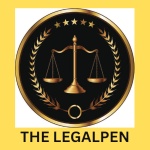“Essential Guide to Drafting Minutes of a Directors’ Meeting”
Service Description
Introduction
Minutes of a Directors’ Meeting are formal records that document the discussions, decisions, and actions taken during a board meeting. These minutes serve as an official and legal record of the meeting, providing transparency and accountability for the decisions made by the board of directors.
Requirement
The need for Minutes of a Directors’ Meeting arises whenever a company’s board of directors convenes to discuss business matters, make decisions, or approve policies. Accurate minutes are required for legal compliance, corporate governance, and as a reference for future decision-making processes.
How to Draft
To draft comprehensive Minutes of a Directors’ Meeting:
- Preparation: Before the meeting, prepare an agenda and distribute it to all participants.
- Date, Time, and Location: Record the date, time, and location of the meeting.
- Attendance: List the names of the directors present, absent, and any guests or observers.
- Call to Order: Note the time the meeting was called to order and by whom.
- Approval of Previous Minutes: Record any comments on and the approval of the minutes from the previous meeting.
- Agenda Items: Document the discussions, decisions, and any voting outcomes for each agenda item.
- Action Items: Note any actions or resolutions that were agreed upon, specifying who is responsible for each task.
- New Business: Include any new business items discussed and decisions made.
- Adjournment: Record the time the meeting was adjourned.
- Signature: The individual responsible for taking the minutes should sign the document.
Filing
Once drafted, the minutes should be reviewed and approved by the board. After approval, they should be filed with other corporate records and made accessible to directors and relevant stakeholders as necessary.
Conclusion
Minutes of a Directors’ Meeting are an essential component of corporate governance. They ensure that all decisions and discussions are accurately recorded, serving as a key reference for future activities and compliance purposes.



